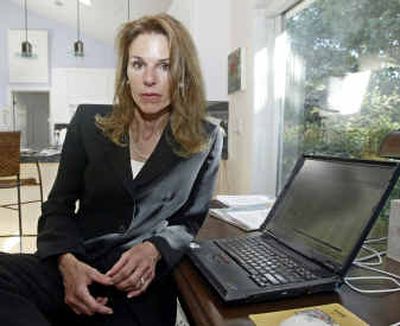Ignoring whistleblower may cost city dearly

SAN DIEGO – For 16 months, the whistleblower was ignored.
Diann Shipione, a trustee of San Diego’s pension plan, sent letters to the mayor, wrote opinion pieces in the newspapers and spoke to the City Council, warning that the fund was a ticking time bomb and that the city was the “municipal Enron.”
But the mind-numbing accounting complexities that the 52-year-old stockbroker described made it easy to dismiss her. And a top city official assured the City Council that she “omitted, slanted and misrepresented the facts.”
When people finally started listening – and it took a distinguished, outside lawyer for that to happen – San Diego became engulfed in a scandal that now threatens to push the nation’s seventh-largest city into bankruptcy.
The Securities and Exchange Commission and the Justice Department are investigating whether the city hid bad news about its pension plan.
The city manager and auditor have resigned. And the mayor is spending the final weeks of his re-election campaign trying to assure the public of the city’s stability.
“America’s Finest City” is in a fine mess. Its unfunded pension liability – the gap between the value of its pension assets and its obligation to retirees – stood at $1.17 billion at the end of January. It also faces a shortfall of $545 million for retiree medical benefits.
This seaside city of 1.3 million people – long hailed as a model of fiscal probity – would need to double its pension contribution next year to $259 million, or about one-tenth of its annual budget, just to avoid falling further behind, said April Boling, who heads Mayor Dick Murphy’s Pension Reform Committee. That is more than three times what the city spends on parks and seven times what it gives libraries.
Boling, who is also Murphy’s campaign treasurer, said the city will need to borrow $600 million on the bond market over three years and raise the retirement age from 55 to 62, among other things.
“If the city doesn’t follow our recommendations, we will be headed toward bankruptcy,” Boling said. “That is a fact.”
On Wall Street, Standard & Poor’s took the rare step of suspending its ratings on the city’s debt Monday.
How did San Diego get into this mess?
A blistering report last week describes the city’s long history of promising more than it could deliver.
The report, prepared by a law firm hired by the city, portrays a dysfunctional City Hall: a city manager – effectively San Diego’s chief executive officer – who didn’t bother to read financial disclosures and wasn’t on speaking terms with his finance deputy, and a “check-the-box mentality” when it came to preparing financial disclosures.
The problem began in 1980, when the city began using above-average returns on its pension investments to give annual bonus checks to retirees, whose buying power had been battered by double-digit inflation. Typically, investment gains are set aside to cushion against downturns in the market.
In 1996, when the city was grappling with expenses imposed by the state and the costs of hosting the Republican National Convention, it cut its contributions to the pension fund and, at the same time, promised enhanced retirement benefits.
In 2002, it cut pension contributions and improved benefits again, in part because of a class-action settlement with retirees.
To make matters worse, the stock-market bubble popped, straining pension funds across the country. In an October 2001 e-mail to a colleague, Terri Webster, assistant city auditor, summed up the impact in her subject line: “EEEK.”
The mayor, a former judge elected four years ago, said now he regrets the 2002 vote but notes the problem began long before him.
He is being pounded by his opponent, San Diego County Supervisor Ron Roberts, for a “steady drumbeat of denial.”
Shipione, a lone wolf on the pension board who was appointed by the previous mayor, had been crying foul since May 2002. But people did not take her seriously until one night last September: Paul Webber, an outside attorney who was handling a sewer bond sale for San Diego, came across a Shipione letter to City Hall and grew alarmed.
Webber, a highly regarded 70-year-old partner at a law firm in Los Angeles, was not so easy to brush aside.
But people at City Hall tried.
When Webber insisted the city detail its billion-dollar problem and spell out future risks, City Treasurer Mary Vattimo scoffed, saying in an e-mail to a colleague that his demand “is OVERKILL.”
His relations with city officials quickly heated to “a boiling point,” according to the law firm report, and he received angry e-mails from city employees, one of them accusing him of making “much ado about nothing.”
Nevertheless, his hard-nosed questions would blow the scandal wide open and lead to resignations at City Hall in February and March.
Webber declined to comment. As for Shipione, she is not taking any bows for her prescient – and long-ignored – warnings.
“This is such an enormous problem,” she said. “I don’t even want to get into the I-told-you-so’s and pointing fingers. I’d like to keep the focus on what we can do.”